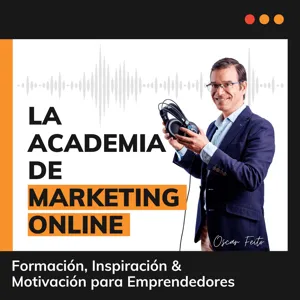Podcast Summary
Leveraging LinkedIn for Hiring and Understanding the Reward Equation: LinkedIn offers access to a unique pool of potential candidates, while the reward equation can help us make more informed decisions and optimize actions for greater rewards.
LinkedIn is a valuable resource for hiring professionals, especially those who may not be actively looking for new jobs. With over 70% of LinkedIn users not visiting other leading job sites, posting a free job on LinkedIn can help businesses access a pool of potential candidates that might not be found elsewhere. Additionally, the concept of the reward equation, as discussed in the book "10 Equations That Rule the World," can be applied to various aspects of life, including gift giving and decision-making. This equation assigns a score to certain activities based on their potential gains, and can help individuals and organizations be more deliberate and effective in their actions. For example, websites like celebrations passport from 1800flowers.com offer rewards and perks for frequent gift-givers, encouraging individuals to engage in this activity more often. Meanwhile, ants use a similar reward system through pheromone trails to guide their fellow ants towards food sources. By understanding and applying the reward equation, we can make more informed decisions and optimize our actions for greater rewards.
Ants and Netflix: Decay of Information: Ants use pheromone trails to determine best food sources, which can be modeled mathematically. Netflix series scores can decay over time, helping us evaluate overall quality and make decisions.
Ants use pheromone trails to collectively determine the best sources of food, and this process can be mathematically modeled using an equation that describes the decay of the trail over time. In human terms, we can apply this concept to evaluating a Netflix series by assigning scores to each episode and allowing the previous scores to decay as we add new ones. This way, we can keep track of the overall quality of the series and make decisions based on the evolving information. If a series consistently scores below a certain threshold, we may choose to stop watching. This mathematical model of decision-making based on decaying information provides an interesting analogy for how we evaluate and prioritize our experiences.
Forgetting and Threshold Parameters in Memories and Habits: Our memories and habits are influenced by forgetting and threshold parameters, and unexpected changes can lead to new patterns and solutions.
Our memories and habits are influenced by a forgetting parameter and a threshold parameter, much like how ants' behavior is influenced by their pheromone trails. The forgetting parameter determines how quickly we forget past experiences, while the threshold parameter decides whether an experience is worth keeping or not. The neurotransmitter dopamine plays a role in keeping track of rewards and memories. However, unexpected changes in our environment can lead to new solutions and behaviors, as seen in ants' pheromone networks. So, even though we may return to the same environment, our experiences and habits may not be the same as before. The ants' behavior suggests that when we experience significant disruptions, we may create new patterns and solutions, even in familiar environments.
Understanding and predicting user behavior for increased engagement: YouTube uses complex algorithms to analyze video properties and user data to make personalized recommendations, keeping users engaged and enhancing their viewing experience.
Companies like YouTube use complex algorithms, such as the learning equation, to understand and predict viewer behavior in order to increase engagement and watch time. By analyzing the properties of videos and user data, such as demographics, viewing habits, and comment sections, YouTube can make personalized recommendations to users with similar interests and viewing patterns. This not only keeps users on the platform longer but also creates a more tailored and enjoyable viewing experience. This approach is just one example of how technology is being used to learn and adapt to user behavior, ultimately reshaping the way we consume media.
YouTube's suggested videos based on comments and viewing habits: YouTube's suggested videos are influenced by user data, including comments and viewing history, not just the content of the videos themselves.
The suggested videos you see on YouTube are not just based on the content of the videos themselves, but also on the comments and viewing habits of the audience. This means that if you find yourself frequently seeing suggested videos about cats or World of Warcraft, it might be an indication of your own interests rather than a failure of the algorithm. This was discussed during an interview with David Sumter, author of "10 Equations That Rule the World." While it might be easy to blame YouTube for the suggested videos you don't want to see, it's important to remember that the platform is using data about you to make those suggestions. Additionally, during the same episode, there were some other interesting tidbits shared. For instance, Mother's Day is coming up, and if you're looking for a way to celebrate, 1-800-Flowers can help you out with handmade bouquets, sweet treats, gourmet food, and one-of-a-kind gifts. And if you're in need of health insurance, UnitedHealthcare TriTerm Medical plans offer flexible and budget-friendly coverage that lasts nearly 3 years in some states. It's fascinating to consider how much can change in just three years – for example, chatbots have become more common as our new best friends. But even as technology advances, some things remain constant, like the need for health insurance. So whether you're looking for a thoughtful Mother's Day gift or a reliable health insurance plan, there are options available to help you out.






